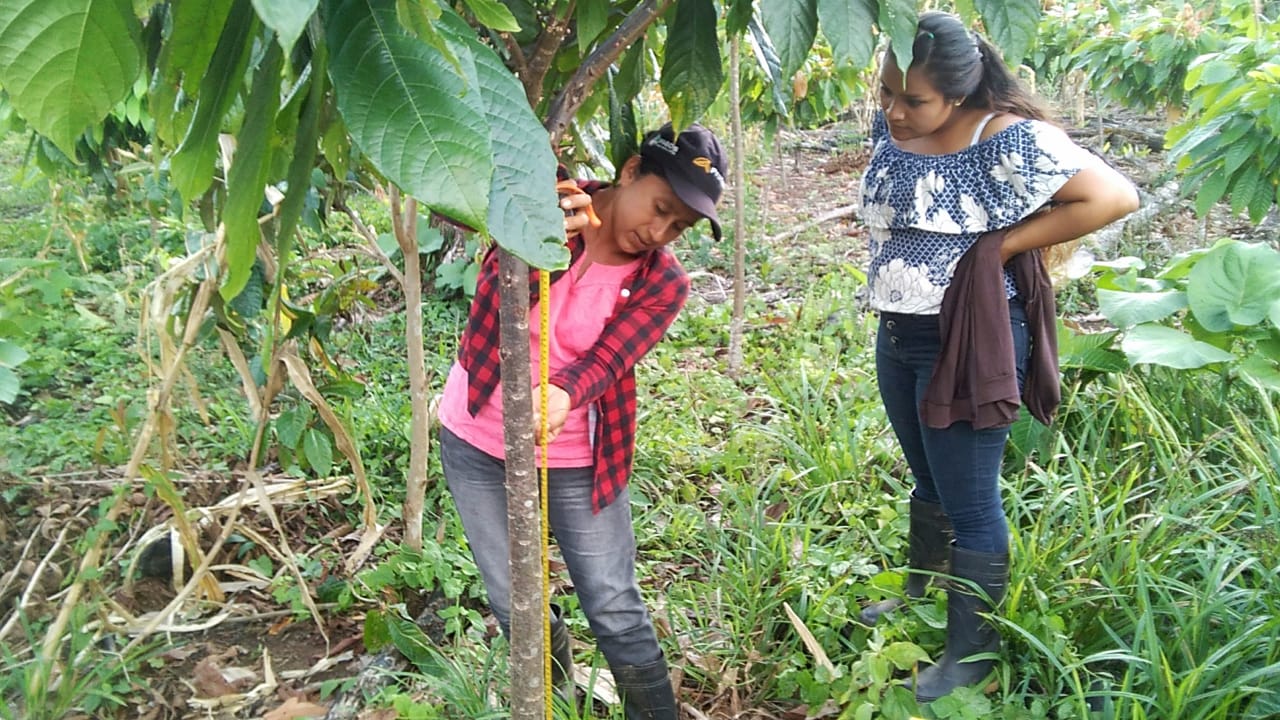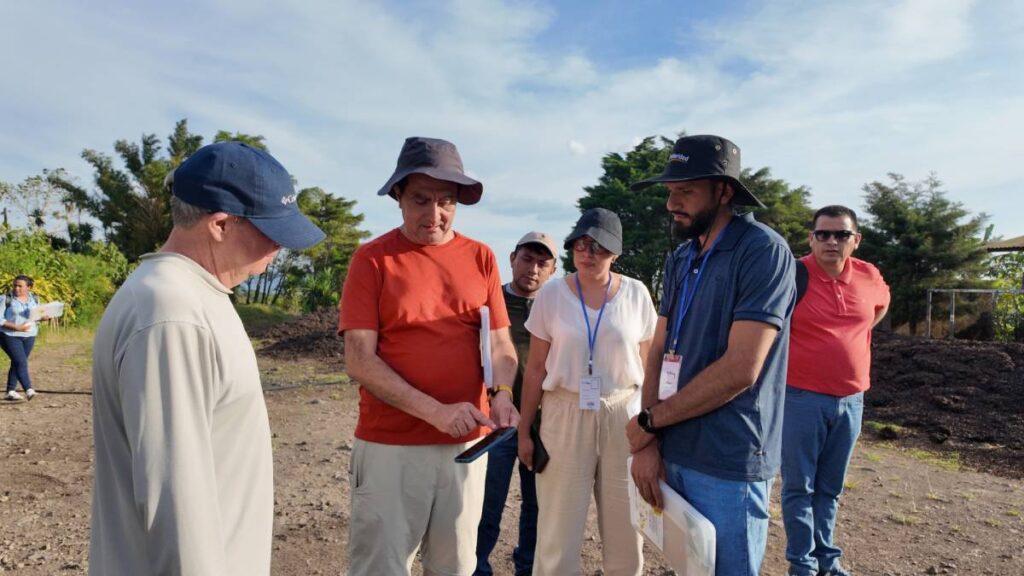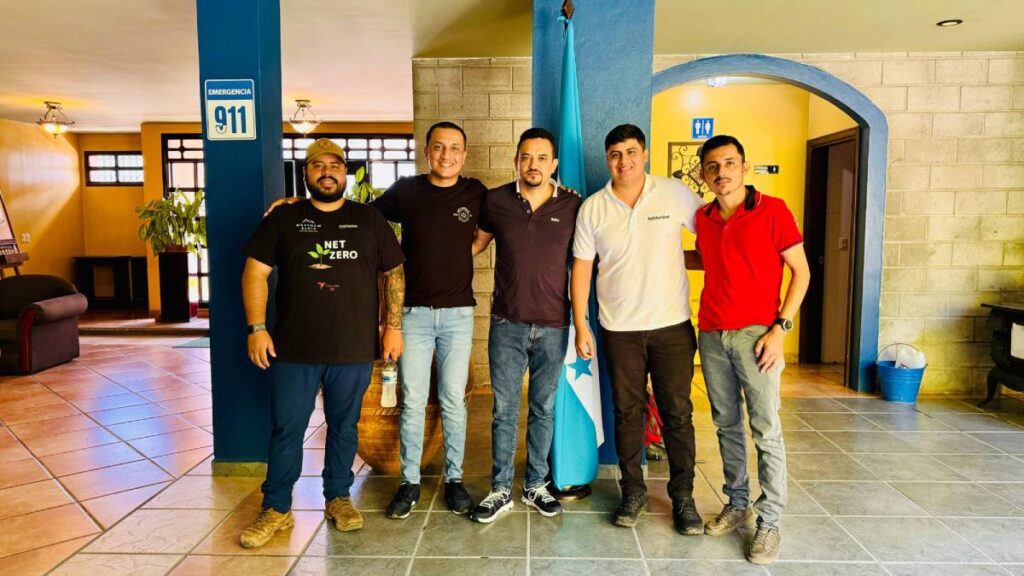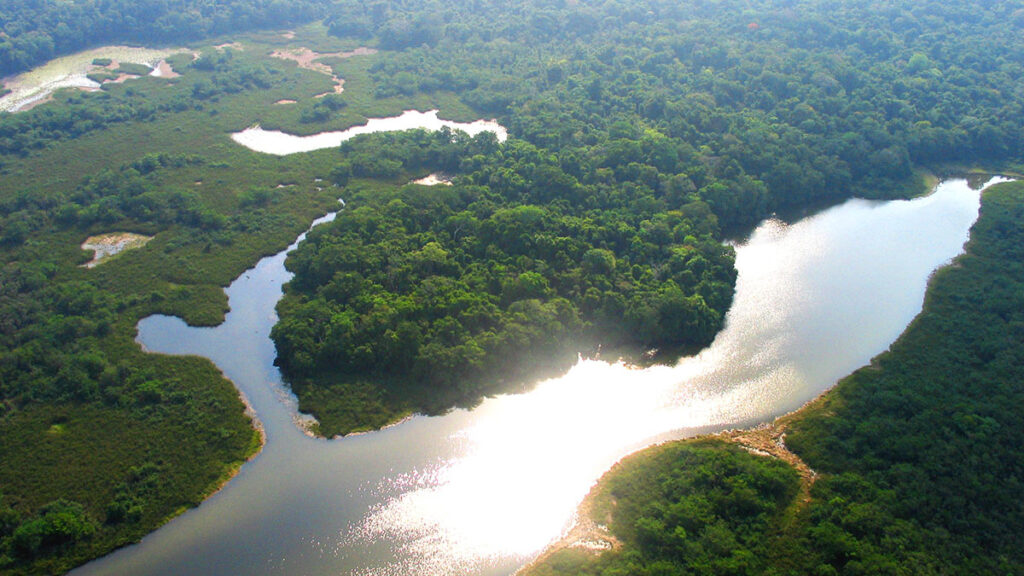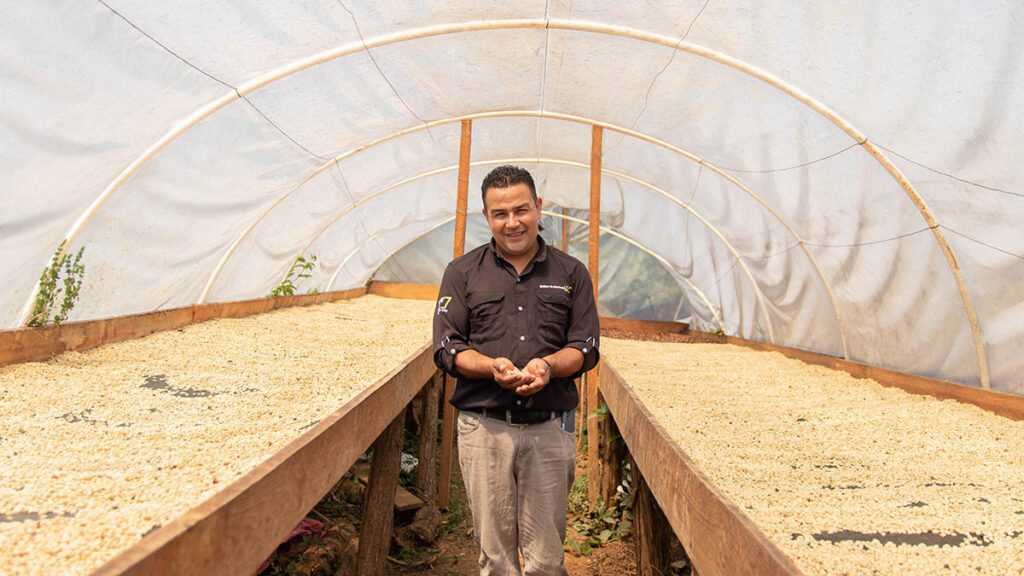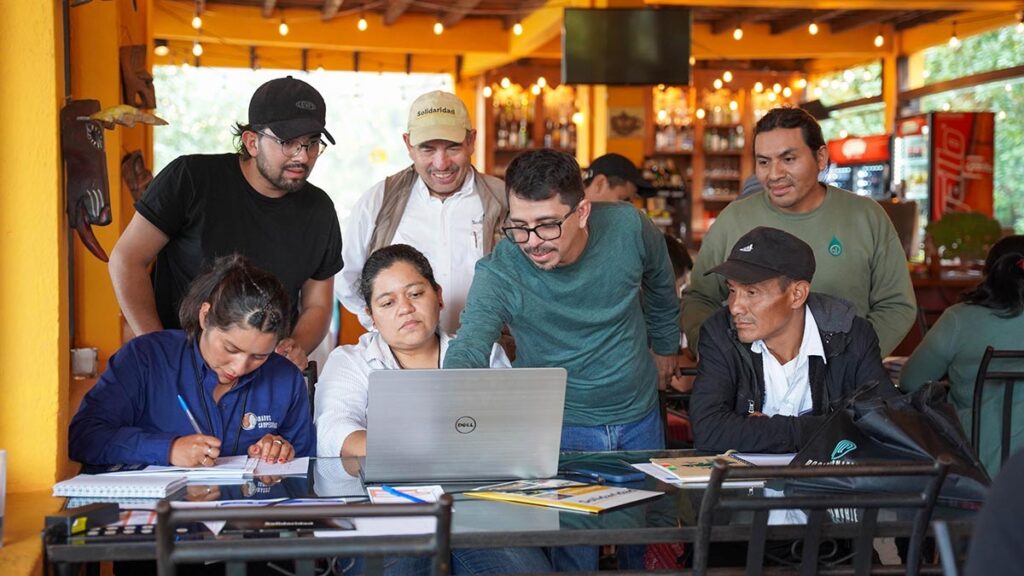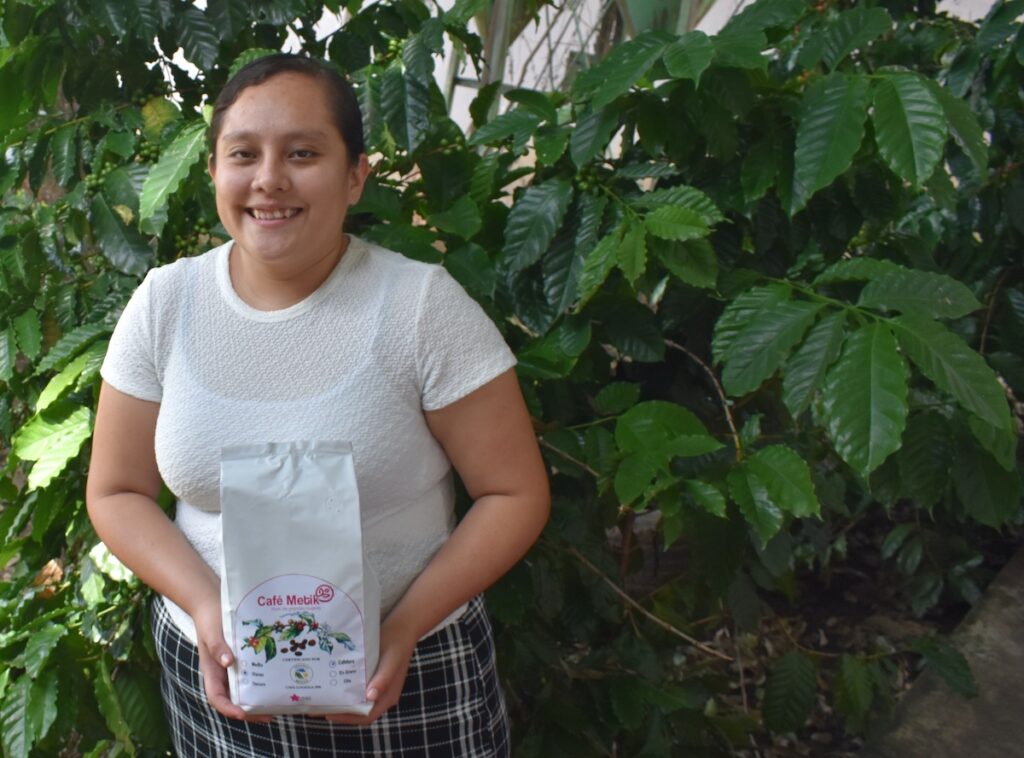In 2021, nearly 5,800 producers received new or improved services from 28 service providers Solidaridad supported, including coffee, cocoa, livestock and oil palm cooperatives, private technical assistance providers, government providers (such as Instituto Nacional Agrario, INA, in Honduras) and promoter groups.
Increasing producers’ ownership in Central American value chains
Solidaridad also supports producers and workers by facilitating access to training and capacity building, so they can acquire skills to access new jobs or improve their job position. Sometimes, producers extend their business beyond the farm as a result of the skills they learn, and this increases their participation and ownership in the supply chain.
Workers with strengthened skills, better or new jobs, and increased participation are all results of a healthy, supportive business ecosystem.
Increasing ownership through finance
At Solidaridad, we have committed to supporting producers and the companies that represent them to access finance, so that they can help transform production systems through sustainable agricultural and manufacturing practices. In May 2021, impact investors funded Fruvex’s project through PlusPlus, a crowdfunding platform that provides flexible financing to small and medium enterprises (SMEs) in the agri-food sectors in Latin America, Asia and Africa. Solidaridad launched the platform in 2020, in partnership with Cordaid, Lendahand and Truvalu. Access to a flexible financing mechanism like PlusPlus, that will allow them to grow their business, facilitates increased ownership in the supply chain for producers.
Producers, like any company, need financing to grow. Access to finance to grow SMEs, create more jobs and accelerate recovery from COVID and extreme weather events is limited. PlusPlus offers more flexible financing so producers can make investments in food systems that champion sustainable production and consumption.
Michaelyn Baur, Regional Director for Solidaridad Central America, Mexico and the Caribbean
Investors choose a project and help fund the project with as little as 50 euros. Learn more about how crowdfunding works on PlusPlus.
Solidaridad is positioning PlusPlus as a financial partner for SMEs in Central America, with a special focus on value chains such as cocoa, coffee and fruits and vegetables. To achieve this, we are partnering with relevant organizations such as INCAE Business School, Rikolto, Technoserve, ACDI/VOCA, among others.
Through Solidaridad’s local facilitation team who accompany the financing process, PlusPlus is increasing interest among SMEs.
Increasing ownership through carbon markets
Through partnerships and the use of appropriate digital tools, coffee farmers practicing climate-smart production can be recognized for ecosystem services and diversify income streams through the sale of carbon credits. In December, Solidaridad completed the first stage of a project in partnership with Rabobank to connect Nicaraguan coffee producers with carbon markets, a replica of previous successful Solidaridad pilots in South America.
In 2021, project staff collected information from 1000 plots. In the second phase, we will analyze the data to convert it into carbon removal units and monetize through carbon sales contracts managed by Rabobank. Rewarding coffee producers for important ecosystem benefits like carbon capture enables families to diversify income and withstand market fluctuations.
Increasing ownership through traceability
In 2021, Solidaridad also signed an agreement with Molinos de Honduras, one of the largest coffee companies in the country, to begin piloting carbon capture initiatives which could eventually open up the carbon market for producers. Also in Honduras, we launched the RECLAIM Sustainability! programme in the coffee sector that will focus on increasing transparency and traceability using integrated digital tools.
We found common ground with Solidaridad, and we loved the idea of a traceability initiative in the coffee chain.
Omar Rodríguez, General Manager of the Capucas Cooperative
Traceability and transparency promote a supportive business ecosystem because farmers and workers are better able to access fair prices and wages. Traceability also facilitates certification processes and reward systems for climate-smart and sustainable production.
In Honduras, our team has been executing a land-titling pilot for oil-palm smallholders in partnership with INA. Land titling increases smallholders’ access to important services and benefits, such finance, since land titles are key collateral for loans. For the sector, land titling provides the means to begin traceability efforts in the farmers’ plots, which will enable Roundtable for Sustainable Palm Oil (RSPO) certification.
Fair working conditions develops supportive business ecosystems
We conducted baselines and training in decent work and gender inclusion in the palm sector in 2021, as part of the RECLAIM Sustainability! programme in Honduras. Through RECLAIM Sustainability!, we are enlisting the support of local partners through the Mesoamerican Palm Oil Alliance (MAPA) multi-stakholder platform to strengthen civil society capacities to further promote and drive a decent work model in the sector.
The RECLAIM Sustainability! programme launched in the palm sector with baselines and training in decent work and gender inclusion.
The RSPO Principles & Criteria (P&C) are divided into three fundamental impact goals: people, planet and prosperity. Within the People Impact Goal there is a strong human rights protection component that pushes for fair wages and decent work principles. In an interview last year, RSPO’s director in Latin America, Francisco Naranjo, stated that there are 77 indicators that reinforce decent working conditions in sustainable palm oil production.
According to Francisco, the national interpretation process is an excellent opportunity to develop guides that allow producers to understand how to face the challenge of sustainable production and to provide clarity to auditors, NGOs and different stakeholders on how to apply the P&C in a given country. In 2021, after several months of multi-stakeholder dialogue steered by Solidaridad through MAPA and a 60-day public consultation that engaged interested parties from various sectors in each country, the RSPO Board of Governors approved the national interpretations of the 2018 P&C in Guatemala, Honduras and Nicaragua.

